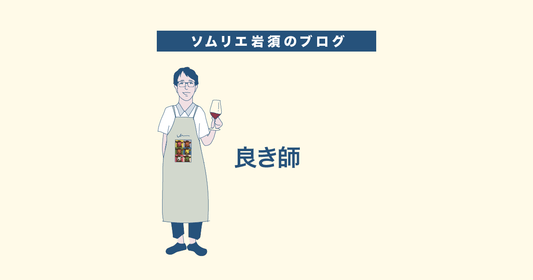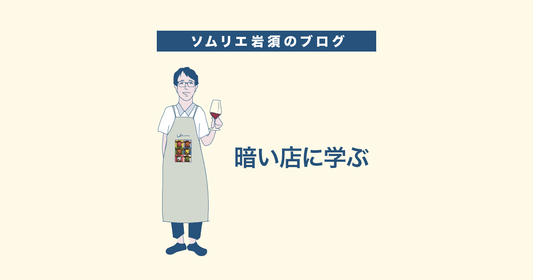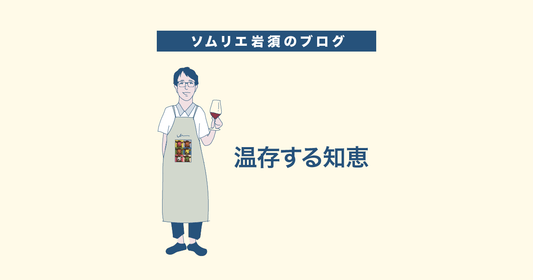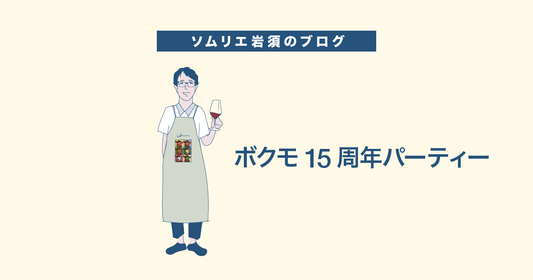
I've been watching movies about wine.
The title of the film is "Signature: Making Japan a World-renowned Brewing Destination."
This film depicts how Yamanashi wine has developed into the high quality it is today, while also telling the story of one winemaker's growth.
(Bokumo Wine has also compiled a news and trivia article for you to check out. ▶ Château Mercian Yasuzo Mitsuhiro's film "Signature - Making Japan a world-famous wine region" will be released in November! )
The genre is "fact-based film."
It's a sequel to the 2018 wine film "Usuke Boys," or maybe it's better to say a companion piece to it, and it's directed by the same director.
The model for the main character is Mitsuhiro Yasuzo , who is still an active winemaker today and who helped Chateau Mercian achieve world-class quality.
I liked the original non-fiction book "Usuke Boys," and I'm glad I saw it in the cinema when it was made into a movie. The vineyards are so beautiful on the big screen.
So I wanted to see Signature at the cinema if possible. However, my son's hospitalization and medical treatment coincided with the screening period.
Then, when I looked at the cinema schedule, I realized that the screening period would end in the blink of an eye. I was worried, "Wow, two weeks is too short!", but I managed to catch the last day to see it.
Now, what's the content?
Oh, that's right.
Is it a rule that you can't write about the contents of a movie in a place where so many people can see it? So, what should I write?
I was muttering this to myself in the living room when my daughter came home from school and said this to me.
"You know, nowadays, if you preface a movie with a spoiler warning, you can write about the plot."
Huh? Is that so?
Nowadays, with so much information out there, there must be many people who want to know what's inside. If you don't want to see it, the moment you see "Spoiler alert," you can just swipe the screen away to avoid seeing it.
It's so old-fashioned to say, "I saw it, I didn't want to know, the writer is at fault." Because that person was given the option and chose to see it for themselves.
Apparently so.
I see. Now that you mention it, I think that's true. Also, I think it'll be a while before it starts streaming on various video sites, so by then everyone will have forgotten about this article. Right?
So, I guess I'll just go along with the rules of my daughter's generation.
Here we go. From here on out, there will be spoilers!!!
Write your story in bullet points.
- The protagonist, Yasuzo Mitsuhiro, is an elite graduate of the University of Tokyo Graduate School who joins Mercian with the goal of becoming a winemaker.
- He was assigned to Chateau Mercian in Yamanashi, where he met Japanese wine pioneer Asai Usuke in the dining room of the dormitory.
- In fact, Usuke Asai had heard that a talented employee had been hired by Mercian, and had come to the dormitory to meet the new employee.
- As Asai talked with Yasuzo, he decided that he wanted him to be his successor, someone who shared his dream of "raising Japanese wine to world-class quality."
- Asai invites Yasuzo to join his project, but Yasuzo firmly declines, saying he has work to do at Mercian.
- Even so, Asai cares about Yasuzo and gives him advice whenever he can. Yasuzo grows from that advice.
- When Asai, who was in his sickbed, slapped him on the back and said, "If you don't carry the weight of Japanese wine, who will?" Yasuzo decided to make Japanese wine something the world could be proud of.
Something like that.
Some people may think that this is just a small incident within Mercian, but that is not the case.
Mercian is the champion of the Japanese wine world, having studied winemaking overseas and honed its techniques through trial and error, and now sharing them with other wineries.
It is not enough for Mercian to grow alone, or for Yamanashi wine to become known around the world. Japanese wine needs to take flight around the world as a wine with a unique Japanese character. This is Asai's philosophy.
Yasuzo took over this tradition and has continued to practice "knowledge sharing" by writing a book about the experiences he gained during his time in Bordeaux and sharing it with many people, which has been one of the reasons why the quality of Japanese wine has improved dramatically.
The coolness of Japanese manufacturing, "Let's all make something good together." I think this movie is a way to learn about the origins of that.
However, one thing I would like to point out when watching this movie is...
- Because the work is based on true events, there are no dynamic plot twists or surprising twists and turns.
- Wine terminology is relentlessly presented, with very little glossary provided.
- If you have no interest in wine, you might not get into it.
- You'll enjoy this film more if you watch the previous film, or rather the related film "Usuke Boys" (the cast is the same, so you can enjoy the "Oh, so that's how it is this time" moments).
...This is entirely subjective, so please don't take it too seriously. It's just my opinion as a random passerby.
Oh, yes, there is one more important element to mention when talking about this movie: the presence of New Zealand wine .
A New Zealand wine appears in the play. The brand is "Providence."
"If such great wine can be made in the emerging country of New Zealand, surely it can be done in Japan too."
The story goes that it was New Zealand wine that inspired such leading figures in the Japanese wine industry as Asai and Yasuzo.
Don't do it, Newsie!
Providence is a so-called New Zealand cult wine, known for winning first place in a blind tasting competition featuring famous wines from around the world, beating out wines from Bordeaux.
This is a wine that is hard to come by these days, but we do have one bottle of an older vintage stored in Bokumo's wine cellar.
I would like to one day compare it with Chateau Mercian's "Signature" (the finest wine for which the film is also named).





